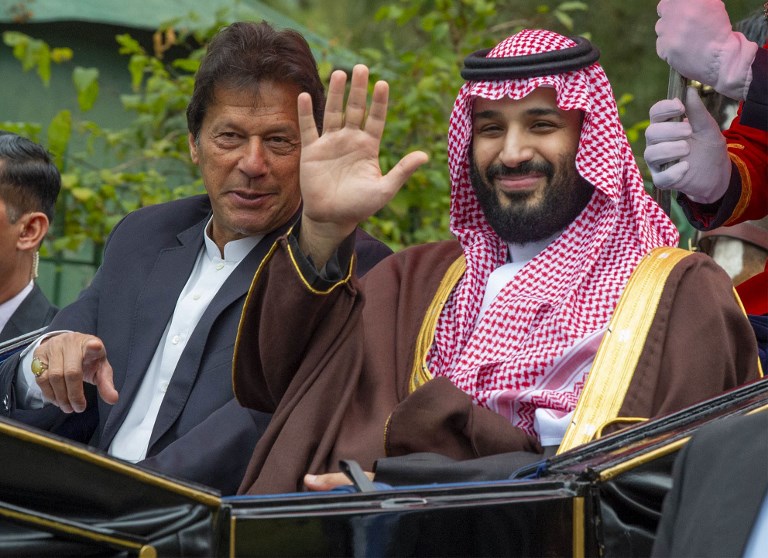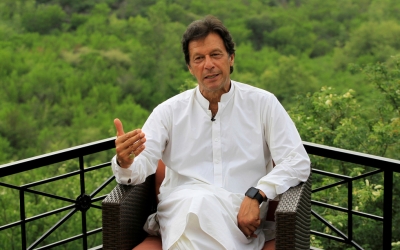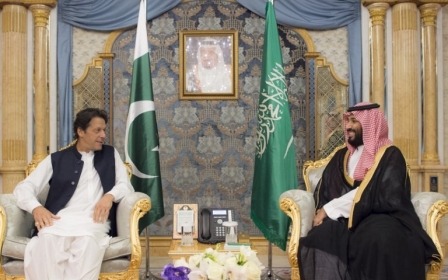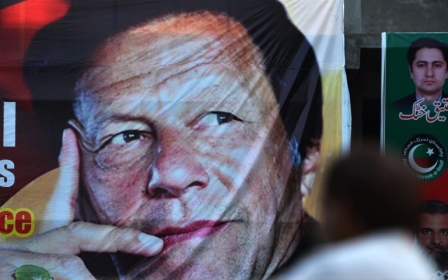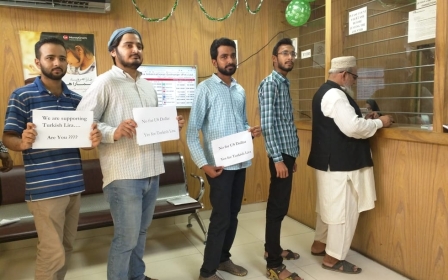The Pakistani general who tamed the Saudi crown prince
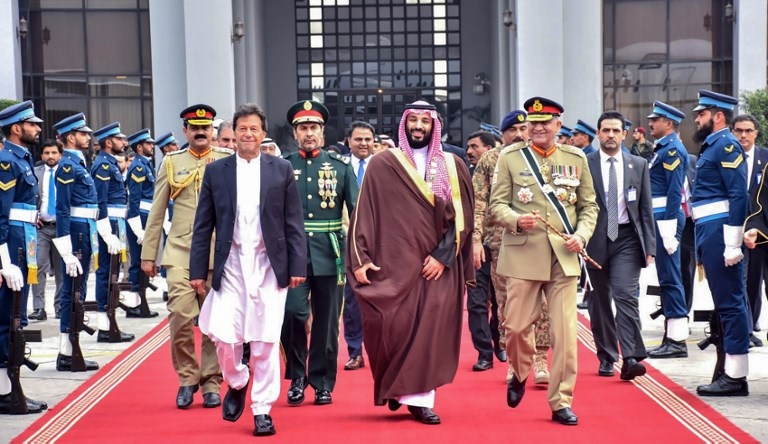
Ever since arriving in office, Pakistani Prime Minister Imran Khan has made the UAE and Saudi Arabia central to the strategy that his government calls "economic diplomacy".
Pakistan has been plagued by decades of endemic corruption and feudal dynastic politics, which have brought the country to the brink of economic ruin. So why is the recently concluded trip of Saudi Crown Prince Mohammed bin Salman (MBS) being seen as a landmark visit with strategic implications not just for their bilateral relationship, but also for Pakistan’s role in the Middle East?
The answer lies with Pakistan Army chief of staff General Qamar Javed Bajwa, who has quietly reset the army’s relations with the Middle East, starting with Saudi Arabia and the UAE.
A brief history of Saudi-Pakistani ties
Riyadh has always been an active participant in Pakistan’s domestic affairs, according to Adel al-Jubeir, the Saudi minister of state for foreign affairs.
New MEE newsletter: Jerusalem Dispatch
Sign up to get the latest insights and analysis on Israel-Palestine, alongside Turkey Unpacked and other MEE newsletters
For decades, analysts and policymakers have written about the Saudi role in Pakistan, with a focus on their military partnership. The former Saudi intelligence chief, Prince Turki bin Faisal, described their bilateral relationship as likely being one of the closest in the world “without any official treaty”.
Never before have the Saudis invested so heavily in Pakistan at the state level, without benefiting a specific politician or general
This is where the problem lay in the past: for too long, military and civilian leaders of Pakistan have benefited from Saudi largesse. Former President Pervez Musharraf admitted to receiving personal favours and financial rewards, and the Saudis have long been dismissive about the corruption of Pakistani leaders.
It is for this reason that the Saudis have always preferred military rule in Pakistan, while former generals have allegedly profited personally, rather than helping Pakistan’s cause. Musharraf has said that under Saudi pressure, he let former Prime Minister Nawaz Sharif go, despite court action and question marks over his rule.
The appointment of former army chief General Raheel Sharif as head of the Saudi-funded “Muslim NATO” raised many eyebrows in Pakistan, given the biased nature of the alliance and the absence of key Muslim countries, including Indonesia, Iran, Algeria and Iraq.
Why was this visit different?
Much fanfare in Islamabad accompanied the recent trip by MBS, with a national holiday declared in the capital and the city in virtual shutdown over the arrival of the Saudi entourage. Never before have the Saudis invested so heavily in Pakistan at the state level, without benefiting a specific politician or general.
The key aspect missing from previous visits was the term “strategic”. In this latest visit, Jubeir emphatically stated that none of the Saudi largesse was charity, but rather an investment. This business-minded, progressive approach marks a significant shift from previous relationships.
Before the MBS visit, leading Saudi expert Mohammed al-Sulami led a delegation that for the first time included academics, former ambassadors, generals and Saudis with active experience concerning Pakistan. It was concluded that strategic ties would be established over personal ties.
Analyst Ibrahim al-Othaimin also wrote about this last year, arguing that Pakistani-Saudi ties were gradually moving out of the personal domain and into the strategic. One of the key reasons for this strategic push has been the defence diplomacy of Javed Bajwa, as highlighted by Sulami.
Changing the equation
Pakistan’s refusal in 2015 to take part in the Yemen conflict rang alarm bells in Saudi Arabia and the UAE. The UAE went so far as to say Pakistan would pay a “heavy price” for its “ambiguous stand”, and led a media campaign against Pakistan when Islamabad voted in favour of Turkey for Expo 2020.
In the years before Bajwa came to office in November 2016, the UAE had drifted closer to India, even sending its troops to take part in an Indian military parade. The logic in the UAE and Saudi Arabia was that “we pay the Pakistanis, so we should get support”. This reflected decades of Pakistani subservience to Saudi rulers, which failed to put the interests of the state first.
In 2015, Saudi officials said that Pakistan failed to provide an adequate rationale for its Yemen decision. Bajwa subsequently embarked on a frantic diplomacy mission, explaining to Riyadh and Abu Dhabi that Pakistan stood ready to help, but had strategic constraints.
He said that while Pakistan would aid the two Gulf countries in defence, it would not take sides in the proxy war with Iran or the Qatar blockade.
Under Bajwa, Qatar’s emir publicly thanked the Pakistan Army for strengthening the Qatari military and playing a positive role in regional issues. The emir was clearly talking about the Saudi-led blockade, as well as bilateral cooperation in Afghan peace talks.
A strategic and equal partner
In addition to taking on the role of mentor for several Gulf armies, Bajwa became the first Pakistan Army chief in decades to make an official visit to Iran, where he called for strategic defence ties. In diplomatic and military circles behind the scenes, and according to my sources, Bajwa has said that MBS needs time, and that he, Bajwa, would play a role in reducing Gulf tensions.
Unlike in the past, Riyadh is viewing Bajwa and Khan as its equals rather than its puppets
So, while the headlines have focused on Khan’s public embrace of MBS, on the sidelines, the man who has reset the relationship between Pakistan and Saudi Arabia - and Pakistan and the UAE - has been Bajwa. He has made Pakistan a strategic and equal partner, rather than a proxy in a Middle East conflict.
Even as the Saudis denounced Iran from Islamabad, the message from Pakistan was one of cooperation with Tehran. Pakistani-Saudi ties are taking on a strategic dimension, yet without surrendering Pakistan’s relations with other states in the region. Unlike in the past, Riyadh is viewing Bajwa and Khan as its equals rather than its puppets.
The views expressed in this article belong to the author and do not necessarily reflect the editorial policy of Middle East Eye.
Middle East Eye delivers independent and unrivalled coverage and analysis of the Middle East, North Africa and beyond. To learn more about republishing this content and the associated fees, please fill out this form. More about MEE can be found here.



